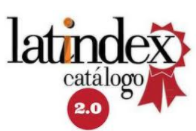Temer Government:
A Conservative Resumption Strategy in Brazil
DOI:
https://doi.org/10.35305/cc.vi130.5Keywords:
Coup d'etat, Neoliberalism, Dilma Rousseff, Michel TemerAbstract
The main objective of this article is to analyze Temer's interim government in the light of the conservative assumptions and adherence to the marketing vision that marked the performance during the period in which he held the Presidency of the Republic. Therefore, in view of the controversial way in which the government took effect, it approaches the premises that ideologically guided the government as the concrete political actions used as a strategy for the deposition of Dilma Rousseff. The measures adopted around social protection policies, on the one hand, and state reform, on the other, reconfigured the citizen status in Brazil, endangering constitutional and political achievements from other periods. Thus, it is a condition of regression and strengthening of conservative precepts of neoliberal inspiration that cohabit the national scene since the 1980s.
Downloads
Downloads
Published
How to Cite
Issue
Section
License
Copyright (c) 2020 CUPEA Cuadernos de Política Exterior Argentina

This work is licensed under a Creative Commons Attribution-ShareAlike 4.0 International License.
Aquellos autores/as que tengan publicaciones con esta revista, aceptan los términos siguientes:
- Los autores/as conservarán sus derechos de autor y garantizarán a la revista el derecho de primera publicación de su obra, el cuál estará simultáneamente sujeto a la Licencia Creative Commons Reconocimiento-NoComercial-CompartirIgual 4.0.
- Los autores/as podrán adoptar otros acuerdos de licencia no exclusiva de distribución de la versión de la obra publicada (p. ej.: depositarla en un archivo telemático institucional o publicarla en un volumen monográfico) siempre que se indique la publicación inicial en esta revista.
- Se permite y recomienda a los autores/as difundir su obra a través de Internet (p. ej.: en archivos telemáticos institucionales o en su página web) antes y durante el proceso de envío, lo cual puede producir intercambios interesantes y aumentar las citas de la obra publicada.
















